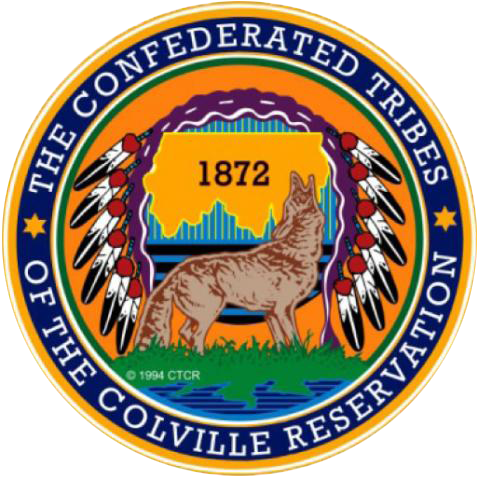Water Rights
On August 30, 2019, the Confederated Tribes of the Colville Reservation submitted a petition to the Washington Department of Ecology seeking the commencement of a general stream adjudication to determine and quantify the Tribes’ water rights. The Tribes’ petition claims water rights to the Columbia and Okanogan Rivers, other rivers on the Colville Indian Reservation, and groundwater. The Tribes has prepared the following frequently asked questions and answers in order to inform Tribal Members and others about the requested adjudication. If you have questions that are not answered below, you may contact Natural Resource Director, at 509-634-2249.
Frequently Asked Questions
What is the Colville Water Information Project?
The information project aims to share detailed and relevant information about the Tribes water rights petition, benefits to the tribes, and other impacts with Colville tribal members.
What is a tribal reserved water right (Winters right)?
Indian tribes have unique rights to water that are reserved by the tribe when the tribe’s reservation is established by treaty, executive order, congressional act, or other means. The amount of water reserved is the amount that is needed to fulfill the purposes of the reservation for both the present and the future. The federal water right is reserved as of the date of the creation of the reservation (and time immemorial for traditional water uses) and cannot be lost even if it is not used. This right provides tribes with the present and future use of water rights that cannot be taken away from the tribes.
Does the Colville Tribes have a Winters reserved water right?
The Tribes has Winters rights that were reserved in 1872 (date of reservation). Water was reserved by the Tribes to fulfill the homeland purpose of the Colville Reservation, including irrigation, stock water, domestic, commercial, industrial and municipal uses, fish and wildlife, cultural uses and other uses necessary to provide a permanent homeland for the Tribes and its members.
If the Tribes already has water rights, why do we need to file a petition now?
While the Colville Tribes has a right to the water flowing through, bordering, and under its Reservation, called the Winters reserved water rights, the amount or quantity of the Winters right has never been determined. The petition submitted to the Department of Ecology is a request to commence a general stream adjudication of the water resources of the Colville Tribes. The Tribes’ permanent homeland and aboriginal water rights needs are paramount and require careful consideration at this time in order to protect existing water resources from being over allocated to other water users.
How much is an acre-foot of water?
An acre-foot of water is the amount of water that covers one acre of land, one foot deep. One acre-foot equals 325,851 gallons of water.
Do the Tribes’ water rights include water for Tribal members?
The Tribes’ water rights include water rights for individual Indian lands held in trust and for individual Indian fee lands.
How will the Tribes benefit from a general stream adjudication?
The Tribes will have a reliable, long-term water supply that can be used for our growing population, for domestic, commercial, industrial and municipal needs, for farming and stock, for instream flows (the amount of water flowing in a stream) and wildlife habitat, for cultural uses and any other use determined by the Tribe to be appropriate to serve its permanent homeland. Water that is not used by the tribe may potentially be leased or marketed to others on and off the reservation.
After the adjudication, who will administer water rights on the reservation?
The Tribes will continue to have authority to administer tribal water rights on the Reservation (as it does today). The state will administer state-based water rights.
Is there a deadline for a final adjudication of the Tribes’ water rights?
In the only other relevant example of a general stream adjudication in this region, the State of Washington initiated litigation of the Yakama Tribes’ reserved water rights in 1977. After a lengthy process, a unifying decree was entered in the Acquavella litigation in May 2019 in order to settle all water claims in that general stream adjudication.





